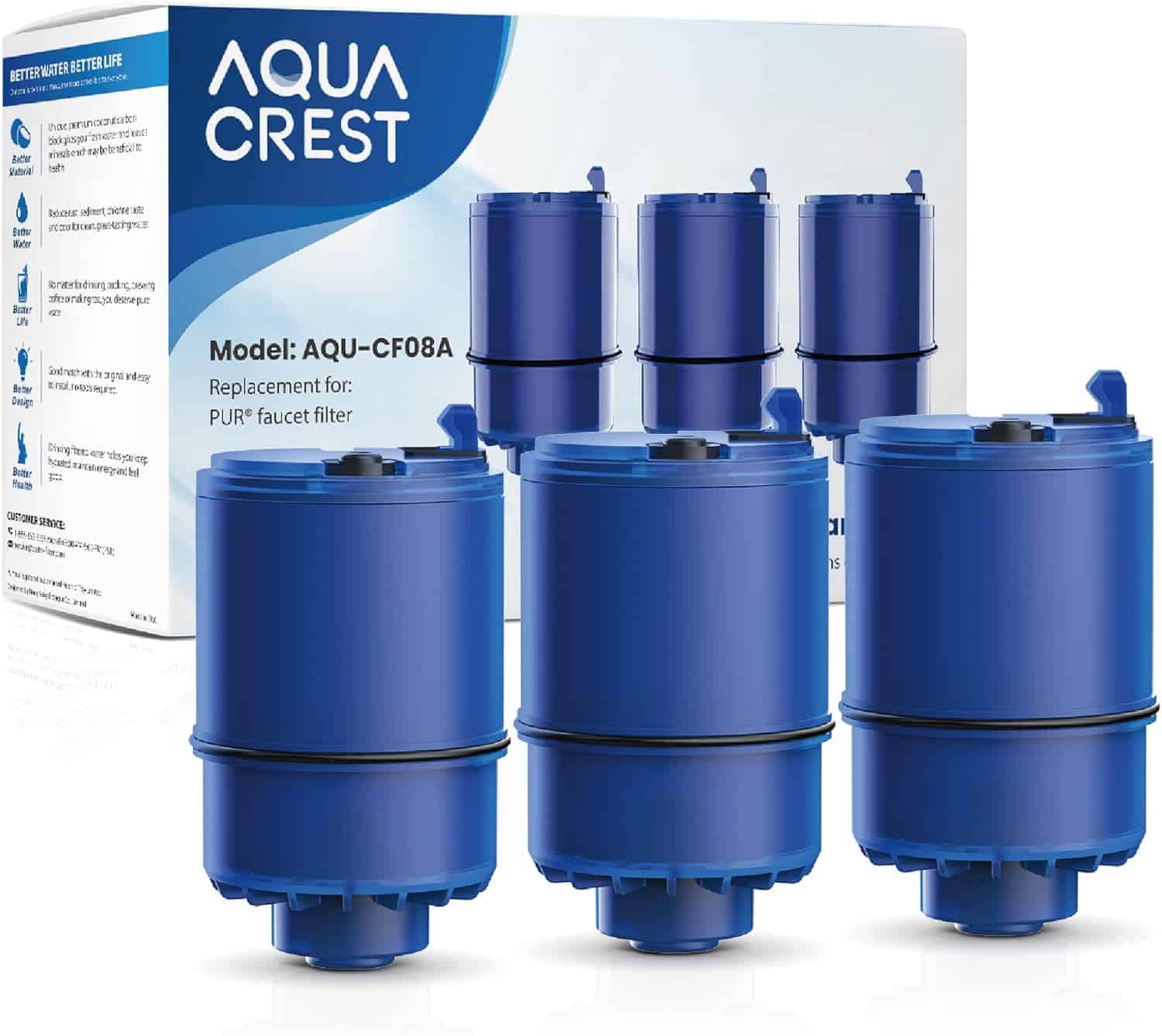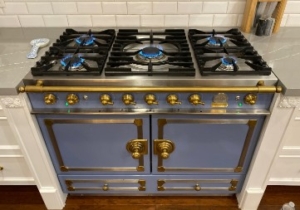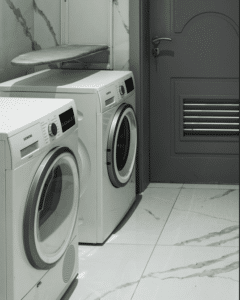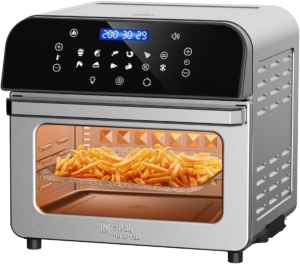Exploring the Benefits of Induction Cooking:
Is it Right for Your Kitchen?
Induction cooking is gaining popularity in modern kitchens due to its advanced technology and numerous benefits. From speed and efficiency to safety, this cooking method is changing the way we cook. But is it the right choice for your kitchen? This blog post will provide insights into the advantages of induction cooking and help you decide if it’s a good fit for your culinary needs. While it may not be for everyone, many find that the benefits of this innovative cooking method make it a worthy investment. Discover the wonders of induction cooking and determine if it’s the right match for your kitchen.
What is Induction Cooking?
Induction cooking is a revolutionary technology that has gained immense popularity in recent years. This advanced cooking method utilizes electromagnetic fields to heat your cookware directly, rather than relying on traditional heating elements or open flames. In this section, we will explore how induction cooking works and delve into its numerous advantages.
How Induction Cooking Works
Induction cooking operates on the principle of electromagnetic induction. When an electric current passes through a coil of wire located beneath the cooktop surface, it generates a magnetic field. This magnetic field then creates a current in the base of compatible cookware, which in turn produces heat. The heat is generated directly in the cookware itself, resulting in rapid and efficient cooking.
One fascinating aspect of induction cooking is its ability to heat the cookware while leaving the cooktop surface cool to the touch. This feature not only enhances safety in the kitchen, particularly for households with children, but also prevents any spilled food from burning onto the surface, making cleanup a breeze.
Advantages of Induction Cooking
Induction cooking offers a plethora of benefits that make it a compelling choice for any kitchen. Let’s explore some of the advantages:
- Speed and Precision: Induction cooktops heat up significantly faster than traditional gas or electric stovetops. The precise control over temperature settings allows for quick adjustments, ensuring your meals are cooked to perfection.
- Energy Efficiency: Induction cooking is highly energy efficient, as it directly heats the cookware without wasting energy on heating the surrounding air. This efficiency can result in lower electricity bills and a reduced carbon footprint.
- Safety: As mentioned earlier, the cooktop surface remains cool during the cooking process, greatly reducing the risk of accidental burns. This feature is particularly beneficial for households with curious children or elderly family members.
- Easy Cleanup: Since the cooktop surface does not get hot, any spills or splatters can be easily wiped away without the hassle of scrubbing or using harsh cleaning agents. This makes induction cooking a convenient option, especially for busy individuals or those who dislike spending excessive time cleaning up after meals.
- Precision Cooking: Induction cooktops offer precise temperature control, allowing for more accurate and consistent cooking results. Whether you need to simmer delicate sauces or sear meats to perfection, induction cooking provides the control and precision required for culinary success.
Exploring the Benefits of Induction Cooking: Is it Right for Your Kitchen?
Induction cooking has gained significant popularity in recent years due to its numerous benefits. If you’re considering upgrading your kitchen appliances, it’s worth understanding why induction cooking might be the right choice for you. In this section, we will explore the four major benefits of induction cooking: energy efficiency, precise temperature control, safety features, and faster cooking time.
Energy Efficiency
Induction cooking is highly energy-efficient, making it a sustainable and cost-effective option for your kitchen. Traditional gas and electric cooktops waste a considerable amount of energy, as they heat up the air around the cookware rather than the cookware itself. In contrast, induction cooktops use magnetic fields to directly heat the pan, resulting in minimal energy loss. This targeted heating ensures that your food cooks faster, saving you time and reducing your electricity bills.
Precise Temperature Control
One of the standout features of induction cooking is its precise temperature control. Whether you’re simmering delicate sauces or searing meats, maintaining the right temperature for achieving perfect results. Induction cooktops offer a wide range of temperature settings, allowing you to adjust the heat with precision. This level of control ensures that your food is cooked evenly and prevents overcooking or burning.
Safety Features
Safety should always be a top priority in the kitchen, and induction cooktops excel in this aspect. Unlike gas or electric cooktops, induction cooktops don’t have open flames or exposed heating elements. The heat is generated directly in the cookware, leaving the surface of the cooktop cool to the touch. This significantly reduces the risk of burns and accidental fires. Additionally, induction cooktops often feature automatic shut-off functions and child safety locks, providing added peace of mind for households with children.
Faster Cooking Time
In our fast-paced lives, time is of the essence, and induction cooktops deliver on efficiency. With their rapid heating capabilities, induction cooktops can bring water to a boil much faster than traditional methods. Whether you’re preparing a quick weeknight meal or hosting a dinner party, induction cooking allows you to spend less time waiting for the stove to heat up and more time enjoying your culinary creations.
Induction cooking offers a range of benefits that can enhance your cooking experience and make your kitchen more efficient. From energy savings to precise temperature control, safety features to faster cooking times, induction cooktops have much to offer. Consider these advantages when deciding whether induction cooking is the right choice for your kitchen.
Induction Cooking vs. Traditional Cooking Methods
Introduction
When it comes to cooking, there are several methods to choose from. From gas stoves to electric cooktops, each has its own benefits and drawbacks. However, in recent years, induction cooking has gained popularity for its efficiency and precision. In this section, we will explore the differences between induction cooking and traditional cooking methods such as gas and electric. So, let’s dive in and find out if induction cooking is the right choice for your kitchen.
Induction vs. Gas Cooking
Speed and Efficiency
One of the main advantages of induction cooking over gas is its incredible speed and efficiency. Induction cooktops use electromagnetic currents to directly heat the cookware, resulting in faster heating times compared to gas stoves. In fact, induction cooking can boil water nearly twice as fast as gas, saving you valuable time in the kitchen.
Safety
When it comes to safety, induction cooking takes the lead. Unlike gas burners, induction cooktops don’t have an open flame. This eliminates the risk of gas leaks or accidental fires, making induction cooking a safer option, especially for households with children or pets. Additionally, induction cooktops cool down quickly after cooking, reducing the chances of accidental burns.
Temperature Control
Induction cooktops offer precise temperature control, allowing you to adjust the heat instantly. With gas stoves, it takes time for the burner to cool down or heat up, which can lead to overcooking or undercooking your dishes. Induction cooking provides a responsive and accurate cooking experience, giving you the control you need to achieve perfect results every time.
Energy Efficiency
In terms of energy efficiency, induction cooking takes the crown. Gas stoves lose a significant amount of heat, as the flames can escape around the sides of the cookware. On the other hand, induction cooktops heat the cookware directly, minimizing heat loss. This efficient heat transfer not only saves energy but also keeps your kitchen cooler, reducing the load on your air conditioning system.
Induction vs. Electric Cooking
Speed and Efficiency
Similar to induction cooking, electric cooktops are known for their quick heating capabilities. However, induction cooking still outperforms electric cooking in terms of speed and efficiency. Electric cooktops rely on heating elements that take longer to warm up and cool down, resulting in slower cooking times compared to induction.
Safety
Induction cooking once again takes the lead in terms of safety when compared to electric cooktops. Electric cooktops can remain hot for a while even after being turned off, posing a risk of accidental burns. On the other hand, induction cooktops cool down rapidly once the cookware is removed, minimizing the chances of burns or injuries.
Temperature Control
Just like gas stoves, electric cooktops also lack the precise temperature control offered by induction cooking. With electric cooktops, it can take a while for the surface to heat up or cool down, leading to potential cooking inconsistencies. Induction cooktops, on the other hand, allow you to adjust the temperature instantly, providing better control over your cooking process.
Energy Efficiency
While electric cooktops are more energy-efficient than gas stoves, induction cooking still trumps them in this aspect. Electric cooktops lose heat through radiation, making them less efficient overall. Induction cooktops, on the other hand, transfer heat directly to the cookware, resulting in minimal heat loss and maximum energy efficiency.
Is Induction Cooking Right for Your Kitchen?
Induction cooking has gained popularity in recent years for its efficiency and precision. But is it the right choice for your kitchen? In this section, we will explore the factors to consider when deciding if induction cooking is the best fit for your culinary needs.
Assessing Your Cooking Style and Needs
Before making any appliance upgrade, assess your cooking style and needs. Do you enjoy experimenting with different cooking techniques and heat levels? Are you a busy professional who needs fast and consistent cooking results? Understanding your cooking habits will help determine if induction cooking aligns with your preferences.
Induction cooktops offer precise and responsive heat control, allowing you to quickly adjust temperatures to suit your specific cooking requirements. With the ability to heat up or cool down rapidly, induction cooking provides a high level of versatility, enabling you to simmer delicate sauces or sear meats to perfection.
Considerations for Kitchen Renovation
If you’re planning a kitchen renovation or building a new home, it’s an ideal time to evaluate the suitability of induction cooking for your kitchen. Induction cooktops are sleek and modern, seamlessly integrating into contemporary kitchen designs. Their flat surface is easy to clean, with no knobs or grates to worry about.
Additionally, induction cooktops are a safer option, especially if you have children in the house. Since the heat is generated directly in the cookware, the surface of an induction cooktop remains relatively cool to the touch, reducing the risk of burns. So, if you’re looking to create a stylish and safe kitchen environment, induction cooking might be the perfect choice.
Cost and Installation Factors
When considering any kitchen upgrade, cost is always a factor to consider. While induction cooktops tend to be more expensive initially compared to traditional gas or electric cooktops, they offer long-term energy savings. Induction cooking is highly efficient, as it directly heats the cookware without wasting excess heat, resulting in lower energy bills.
Installation is another to consider. Induction cooktops require a power source capable of delivering a high level of electricity and may require professional installation. Make sure to check if your kitchen is equipped with the necessary electrical infrastructure or if any upgrades are needed.
Tips for Using Induction Cooktops
When it comes to using induction cooktops, there are a few important factors to consider. From choosing the right cookware to understanding induction cookware compatibility, and proper maintenance and cleaning, these tips will help you make the most of your induction cooking experience.
Choosing the Right Cookware
One of the key factors in achieving optimal results with induction cooking is selecting the right cookware. Unlike traditional gas or electric stoves, induction cooktops rely on magnetic fields to heat the cookware directly. Therefore, choose cookware that is compatible with induction cooking.
To ensure compatibility, look for cookware made from magnetic materials such as stainless steel or cast iron. These materials allow the induction cooktop to generate heat efficiently. Avoid using cookware made from aluminum, copper, or glass as they are not suitable for induction cooking unless they have a magnetic base.
Additionally, consider the size and shape of the cookware. Induction cooktops only heat the area in direct contact with the cookware, so using cookware that matches the size of the induction burner will maximize heat transfer and minimize energy waste.
Understanding Induction Cookware Compatibility
While choosing the right cookware is essential, it’s also important to understand induction cookware compatibility. Some cookware may have a magnetic base but still not work efficiently with induction cooktops. This can be due to factors such as uneven thickness or poor heat distribution.
To ensure compatibility, look for cookware specifically labeled as “induction-ready” or “induction-compatible.” These products are designed to distribute heat evenly and efficiently, resulting in better cooking performance. Additionally, consider investing in high-quality induction cookware sets that include a variety of pots and pans to suit different cooking needs.
Proper Maintenance and Cleaning
To keep your induction cooktop in optimal condition and ensure its longevity, proper maintenance and cleaning. Here are some tips to help you maintain your induction cooktop:
- Regularly wipe down the cooktop surface with a soft cloth or sponge to remove any spills or food residue. Avoid using abrasive cleaners or scrub brushes that can scratch the surface.
- Use cookware with flat bottoms to prevent scratches and promote even heat distribution.
- Avoid dragging or sliding cookware on the cooktop surface, as this can cause scratches or damage.
- Clean any spills or stains immediately to prevent them from hardening or becoming difficult to remove.
- Follow the manufacturer’s instructions for cleaning and maintenance, as different models may have specific requirements.
By following these tips, you can ensure that your induction cooktop performs at its best and enjoy the many benefits it has to offer.
Remember, choosing the right cookware, understanding induction cookware compatibility, and proper maintenance and cleaning are key elements in making the most of your induction cooking experience. By taking these factors into consideration, you’ll be well on your way to becoming a pro with your induction cooktop.
Conclusion
After exploring the benefits of induction cooking, it is clear that this modern cooking technology offers numerous advantages for your kitchen. From its efficiency and precise temperature control to its safety features and easy maintenance, induction cooking has proven to be a popular choice among homeowners. While it may require a slightly higher initial investment compared to traditional gas or electric cooktops, the long-term benefits make it a worthwhile consideration. If you value speed, energy savings, and a sleek, minimalist design, then induction cooking may be the right choice for your kitchen. So why not embrace the future of cooking and give induction a try? You might be pleasantly surprised by the results.







